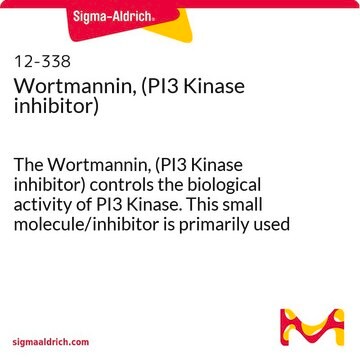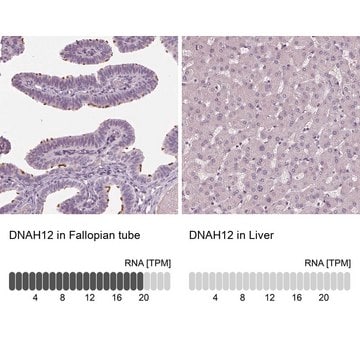07-1341
Anti-PHLPP1 Antibody
from rabbit, purified by affinity chromatography
Sinónimos:
PH domain and leucine rich repeat protein phosphatase, PH domain leucine-rich repeat protein phosphatase, Pleckstrin homology domain-containing family E protein 1, SCN circadian oscillatory protein, Suprachiasmatic nucleus circadian oscillatory protein
About This Item
WB
western blot: suitable
Productos recomendados
biological source
rabbit
Quality Level
conjugate
conjugate
antibody form
affinity isolated antibody
antibody product type
primary antibodies
clone
polyclonal
form
liquid
purified by
affinity chromatography
species reactivity
rat, mouse, human
technique(s)
immunocytochemistry: suitable
western blot: suitable
immunogen sequence
KLH-conjugated linear peptide corresponding to the C-terminus of PHLPP1.
NCBI accession no.
UniProt accession no.
shipped in
wet ice
storage temp.
2-8°C
Gene Information
human ... PHLPP1(23239)
General description
Specificity
Immunogen
Application
Signaling
PI3K, Akt, & mTOR Signaling
Quality
Western Blot Analysis: A 1:1,000 dilution of this antibody detected PHLPP1 in Human brain tissue lysate.
Target description
Physical form
Storage and Stability
Analysis Note
Human brain tissue lysate
Other Notes
Disclaimer
¿No encuentra el producto adecuado?
Pruebe nuestro Herramienta de selección de productos.
Storage Class
12 - Non Combustible Liquids
wgk_germany
WGK 1
flash_point_f
Not applicable
flash_point_c
Not applicable
Certificados de análisis (COA)
Busque Certificados de análisis (COA) introduciendo el número de lote del producto. Los números de lote se encuentran en la etiqueta del producto después de las palabras «Lot» o «Batch»
¿Ya tiene este producto?
Encuentre la documentación para los productos que ha comprado recientemente en la Biblioteca de documentos.
Nuestro equipo de científicos tiene experiencia en todas las áreas de investigación: Ciencias de la vida, Ciencia de los materiales, Síntesis química, Cromatografía, Analítica y muchas otras.
Póngase en contacto con el Servicio técnico








